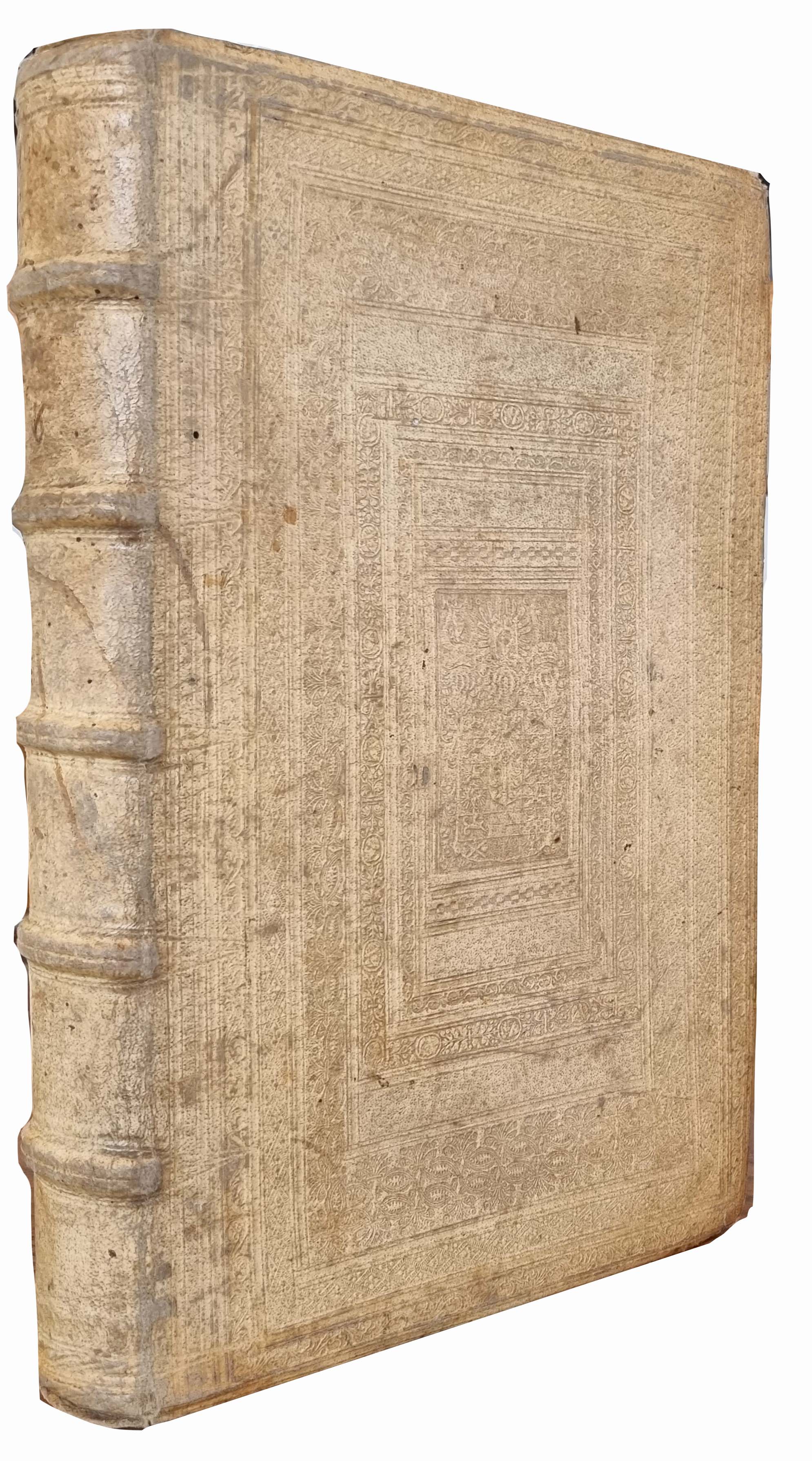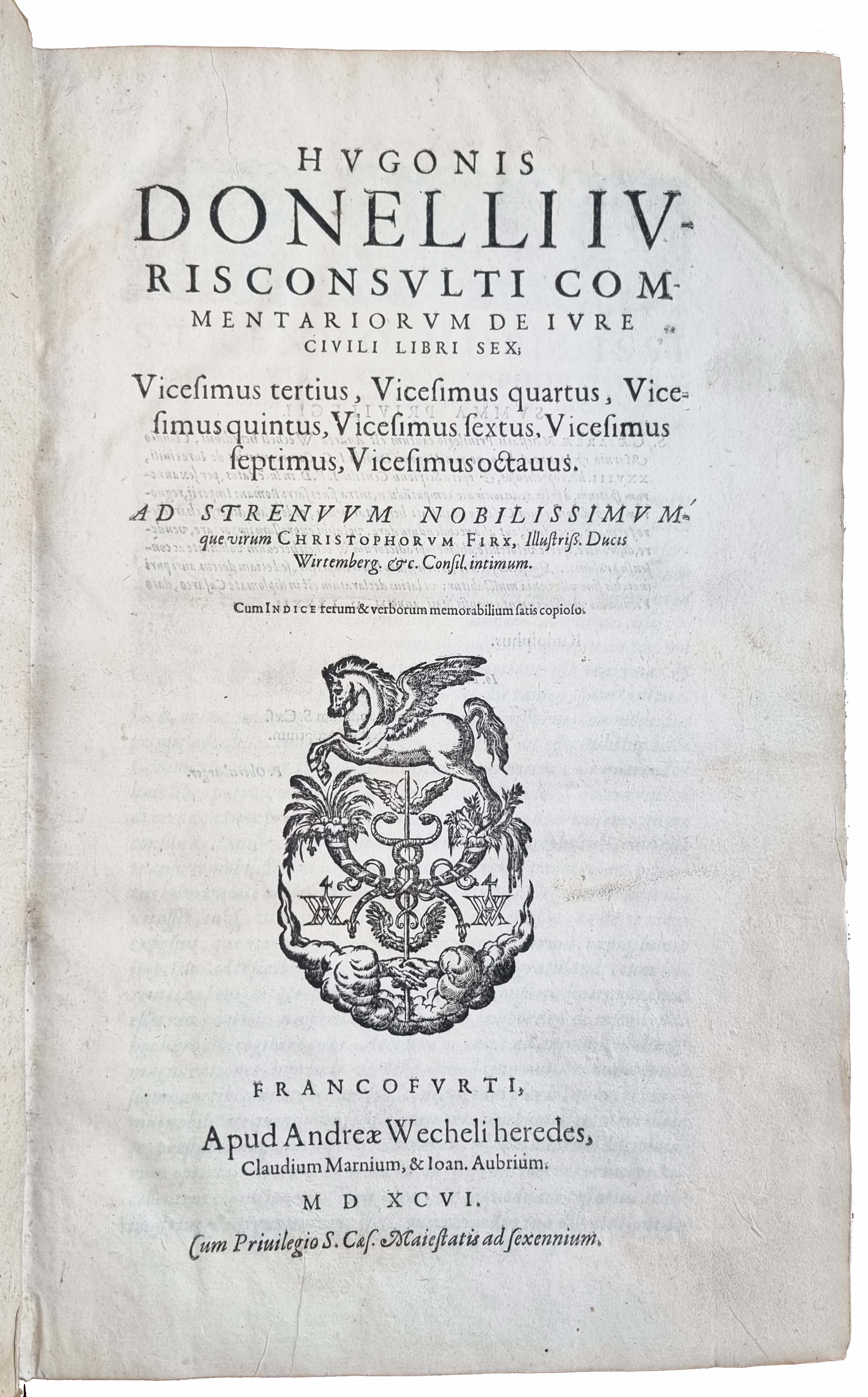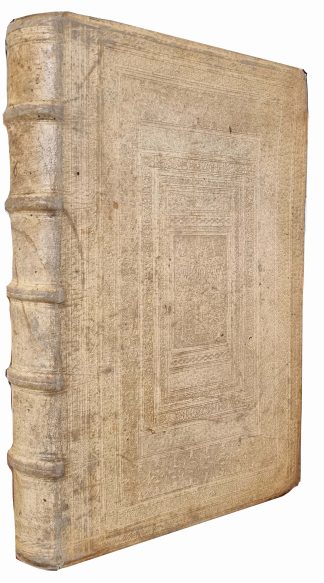DONELLI, HUGO (DONEAU, HUGUES).
Commentariorum de iure civili sex. [with] Commentarii absolutissimi.
Frankfurt, Andreae Wecheli, 1596 [and] Frankfurt, Collegio Paltheniano, 1599.£1,650.00
Folio. 2 works in 1. Pp. (viii) 463 (xvii); (viii) 416 (xxvi). Roman letter. Printer’s device to tp and verso of first, figurative and ornamental head and tail pieces and initials. Large printer’s device to second tp, figurative and ornamental head and tail pieces and initials. Contemporary ex libris to pastedown of ‘Ex Bibliotheca Wesiana (?), Possess J.A.D. Ao. 1605’, indicating the library for which the binding was produced. Light age browning, heavier to second, marginal light water stain to upper outer corner of last 50 leaves. A good copy in very handsome contemporary blind stamped German pigskin, rolls surrounding central large armorial, three closed helms indicative of considerable noble status, monogram C G above, spine with five raised bands, some rubbing to corners, a few scratches to covers.
Impressively bound collection of two important legal texts by the French law professor Hugues Doneau, known in the Latinised form as Hugo Donelli, or Hugonis Donellus (1527-1591). Doneau studied in Toulouse and Bourges where he was educated in legal humanism by François Douaren, one of the leading proponents of the movement. Because he was a Calvinist, Doneau was forced to flee to Geneva, and took up a professorship at Heidelberg, and later Leiden and Altdorf, where he remained until he died. The scholar was constantly on the run because of his Calvinist beliefs.
Doneau became one of the leading figures in the dogmatic legal humanism movement thanks to the influence of François Douaren and Andrea Alciato. He applied Renaissance humanism to his law practices and legal texts, taking significant inspiration from Roman legal texts. The Comentarii de iure civili is his best known work, written at the end of his life, and focuses on the construction of a coherent system of law, systematising the entirety of Roman law into a logical order rather than the sequence of the books and titles of the Digest by Justinian I. Although the humanists had a minor immediate impact on the practice of law, the long term influence on legal science is notable. In Book I, Doneau makes general points on law, justice and legal sources, II and III examine the law of persons, IV-XVI deal with the law of things and XVII-XXVIII look at the law of actions.
“In the history of European jurisprudence, this magnum opus was an unparalleled achievement, not in method but in dogmatics…By way of the pandectists, the modern doctrine of civil law has adopted Doneau’s central thoughts, which are rooted in his systematisation and individualisation of civil law.” Hattenhauer, Christian. ‘Hugues Doneau’, Great Christian Jurists in French History, 2019.
Adams D807; Not in Brunet, Graesse or BM STC Ger.In stock




